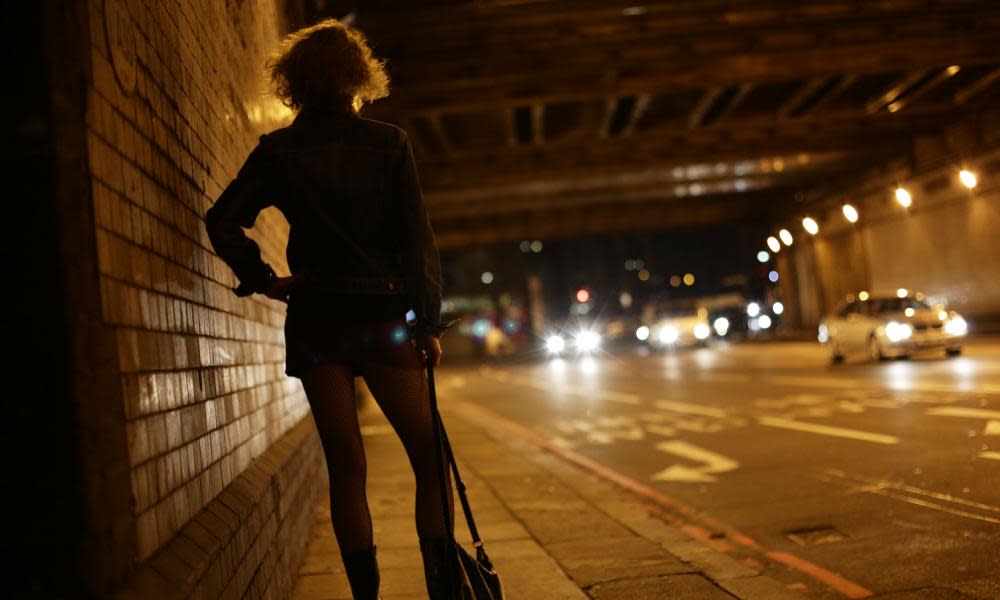MPs, we need to talk about – and to help protect – Britain’s sex workers | Frankie Mullin

On 29 May this year, Romina Kalaci was found dead in her flat in Kilburn, London. She had been stabbed multiple times by Noor Mohammad, who is now serving time in prison. Kalaci was a sex worker, one of the estimated 70,000 people (mainly women) who sell sex in the UK. She was working alone. Under current UK law, that was her only legal option.
Sunday 17 December is International Day to End Violence Against Sex Workers (IDEVASW) and, worldwide, sex workers will gather to mourn and to call for change. In London, the English Collective of Prostitutes (ECP) and the Sex Worker Advocacy and Resistance Movement (SWARM) will hold a vigil outside parliament on 18 December. We will build a memorial for the sex workers who’ve lost their lives, and have invited MPs to come out and speak to us. We are calling for full decriminalisation of working with another person for safety, and acknowledgment that the UK’s piecemeal legislation, which criminalises such working, contributes to violence.
No single piece of legislation will make the world perfect. Male violence is endemic, our society still deeply racist. Closed borders create the conditions in which migrants make risky choices, when they have choices at all. Austerity, the closure of women’s refuges, lack of affordable childcare; all of these lie at the heart of stories that invite us to shudder at the idea of stories like “Prostitutes selling themselves for a meal deal”.
Decriminalisation of sex work will not undo centuries of stigma any more than the criminalisation of marital rape in 1991 instantly redressed gender inequality or ended sexual violence. The world doesn’t work like this. What legislation can do is offer recourse, the backing of the criminal justice system; it makes a crime visible by drawing a line between what is and is not morally acceptable. Adequate working conditions in the sex industry become discrete from forced sexual labour and exploitation.
‘They come – five or six guys with knives, and they know where the money is'
This year, a woman in north London jumped out of the window of a brothel to avoid a robbery. She broke her leg but did not go to the police. Her assailants have not been caught. Another woman told the Guardian: “They come – five or six guys with knives, and they know where the money is. The girls, they don’t call the police, because if they call the police they will just appear there and say to [the girls] to leave.”
National Ugly Mugs, which allows sex workers to anonymously report violence, has received 745 reports this year, including 282 for violence, 103 for robbery, 97 for rape. But sex work isn’t dangerous by virtue of the labour itself. Giving someone oral sex won’t kill you. What exposes sex workers to danger is inadequate prostitution law and the relentless stigma that casts sex workers as a tainted subsection of society, already singled out for violence if they’re women, more so still if they’re trans or if they’re migrants. It is that stigma that makes their murders seem inevitable.
It’s impossible to create a comprehensive list of sex workers’ deaths. In 2016, more than 150 names made the awful IDEVASW roll, but many go unrecorded. In a climate of fear, few sex workers are open about what they do. But these figures should exist, they should be recorded. Why is this industry at once the subject of such unforgiving scrutiny and yet still so shrouded in the unknown? Why, of the 70,000 sex workers in the UK, can I count on one hand those willing to stand up in public and talk about their work? The level of shame is so telling.
We urgently need an honest conversation about – and with – the tens of thousands of people who sell sex in the UK. Yet chances keep slipping by. The UK’s current inquiry into sex work, led by the all-party parliamentary group on prostitution, has missed the target, focusing instead on the largely media-driven moral panic that is “pop-up brothels” and lending its weight to the Nordic model, which most sex worker-led groups around the world oppose. Monday 18 December is the closing date for this inquiry, and for that reason we will be standing outside parliament, both mourning the dead and demanding that MPs listen to those who, today and tomorrow, continue to sell sex.
Many of my sex-working friends have experienced violence and harassment at work, few have gone to the police. This International Day to End Violence Against Sex Workers we ask politicians to speak with us outside parliament and take seriously their role in ending the violence.
• Frankie Mullin is a freelance journalist, and is part of the English Collective of Prostitutes and the Sex Worker Advocacy and Resistance Movement
• The vigil takes place on Monday 18 December, between noon and 2pm, at New Palace Yard, London SW1. All are welcome

 Yahoo News
Yahoo News 
